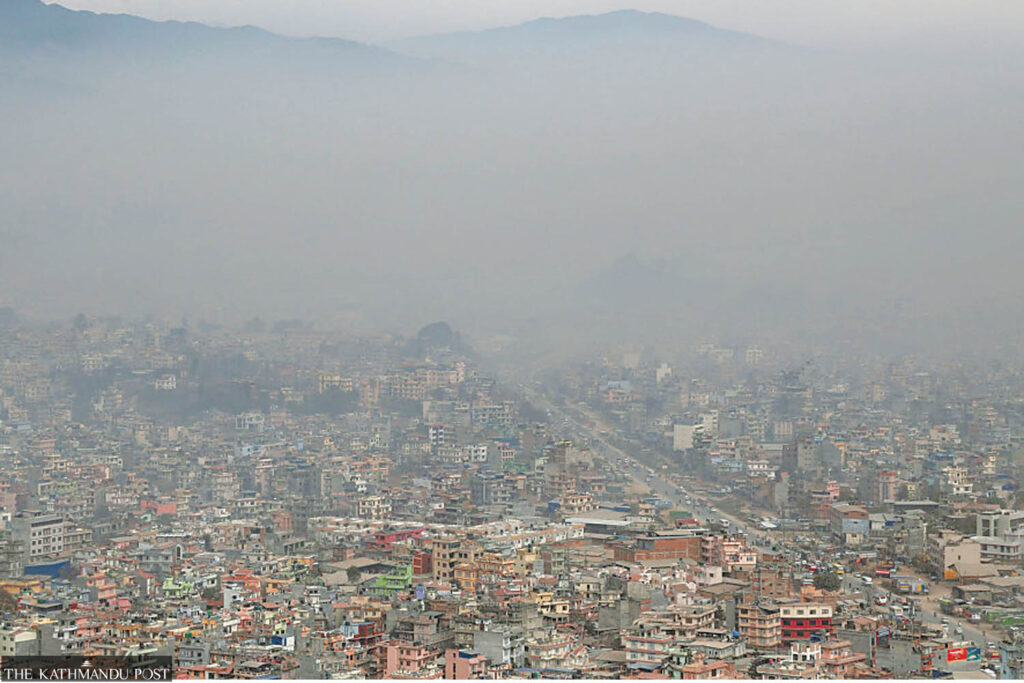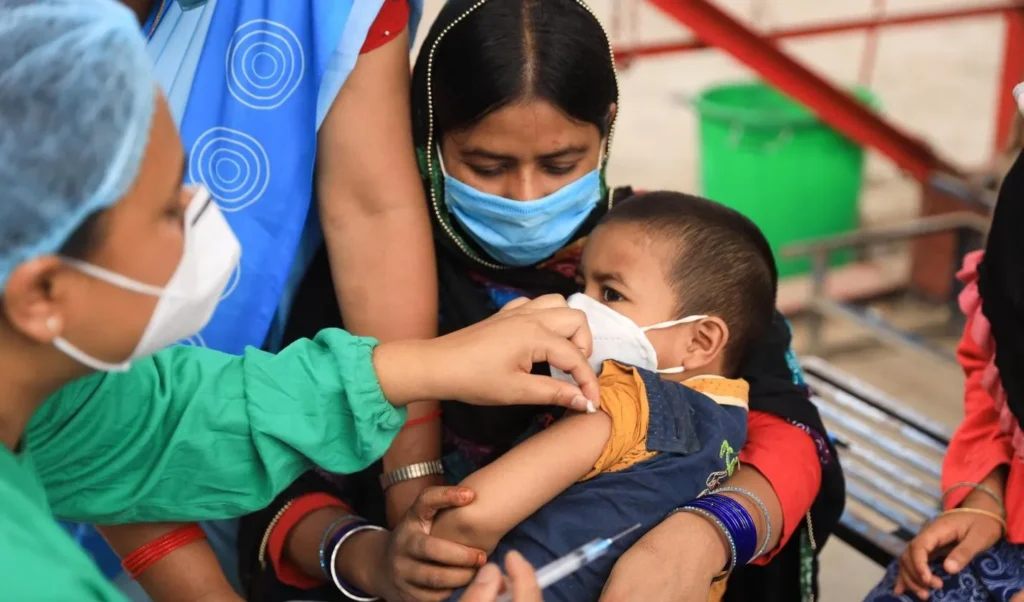
Nepal is facing a dual public health emergency — a hazardous air pollution episode of historic proportions and a major financial blow to essential healthcare services due to deep budget cuts. Together, these parallel crises are threatening to undo decades of progress in maternal health, disease prevention, child nutrition, and basic public health infrastructure.
Unprecedented Air Pollution: A Growing Environmental Threat

For over two weeks, much of Nepal — and especially the Kathmandu Valley — has been blanketed in dense haze caused by smoke, wildfires, and prolonged dry weather. Experts from Nepal’s meteorological department confirmed that haze, typically a short-term phenomenon, has persisted unusually long this year, drastically reducing visibility and endangering public health.
Air quality tracking services, such as IQAir, ranked Kathmandu as the most polluted city in the world multiple times in early April, with PM2.5 concentrations exceeding 200 μg/m³ — a hazardous level according to international standards.
This prolonged pollution has triggered a surge in respiratory issues, including asthma attacks, chronic coughs, flu symptoms, and viral fever cases. Health institutions across the country have seen a spike in patients, especially among children, the elderly, and individuals with pre-existing lung and heart conditions.
A Collapsing Healthcare Budget: Uncertainty Amid Growing Needs

While pollution-related illnesses increase daily, Nepal’s healthcare infrastructure is simultaneously facing a severe budget shortfall. As per recent statements by public health officials, the Ministry of Health and Population has been instructed to plan programmes based on an estimated budget that lacks guaranteed funding. This has placed many vital services — including HIV/AIDS treatment, reproductive health programmes, and child nutrition campaigns — at risk of suspension.
Key concerns include:
- Reduction of HIV/AIDS funding affecting over 25,000 patients on antiretroviral therapy
- Vitamin A supplementation campaigns, which helped reduce child mortality, facing disruption
- Stock-outs of family planning supplies such as Depo-Provera, condoms, implants, and emergency pills
- Halting of long-planned surveys and training programmes critical to SDG targets for maternal, neonatal, and child health
Officials have warned that if budget ceilings are not revised, Nepal may see a rise in unintended pregnancies, unsafe abortions, maternal deaths, and child malnutrition, reversing health gains achieved over the past two decades.
Bhaktapur International Hospital’s Response: Standing Strong Amid Systemic Gaps
As public health systems struggle under financial and environmental pressure, Bhaktapur International Hospital (BIH) continues to operate as a resilient, community-focused healthcare institution, providing uninterrupted care despite external uncertainties.
“This is more than a budget issue or a pollution spike — it’s a national emergency that affects every family,” said Dr. Ramjee Kumar Shrestha, CEO at Bhaktapur International Hospital.
“Our mission has always been to deliver affordable, accessible, and dignified healthcare — especially when the public system falters.”
How Bhaktapur International Hospital Is Making a Difference
Despite resource challenges, BIH has implemented several key initiatives:
🔸 Strengthened Respiratory Services
- Pulmonary Function Testing (PFT)
- Specialist consultations for asthma and chronic respiratory illness
- Indoor air filtration protocols for safer treatment environments
🔸 Support for Maternal and Child Health
- Low-cost maternity care, even amid national contraceptive shortages
- Ongoing awareness campaigns around reproductive rights and safe motherhood
🔸 Affordable, Transparent Pricing
- Rates comparable to public hospitals, without hidden costs or waiting lists
- Discounts through partnerships with NMB Bank and Nepal Bank for cardholders and staff
🔸 Health Camps and Outreach
- Free dental and gynecology camps
- Screening drives for kidney, heart, and liver health
- Community education sessions on pollution prevention and self-care
A Call for Policy Reform
The current crisis highlights the urgent need for a national health financing reform that secures essential services from both environmental and economic shocks. Hospitals like BIH are stepping up — but they cannot carry the system alone.
“Healthcare is not optional,” said Mr. Shrestha. “We need realistic budgets, long-term planning, and strong public-private collaboration. The wellbeing of our nation depends on it.”
Conclusion
Nepal’s health crisis — exacerbated by both toxic air and tightened funding — is testing the resilience of the country’s medical infrastructure. While institutions like Bhaktapur International Hospital are doing their part to adapt and serve, a coordinated national response is required to protect the health of millions and secure the country’s Sustainable Development Goals.
For More Information or Appointments:
📍 Bhaktapur International Hospital, Kaushaltar, Madhyapur Thimi
📞 01-6637271 / 01-6637171
🌐 www.bihospital.org

